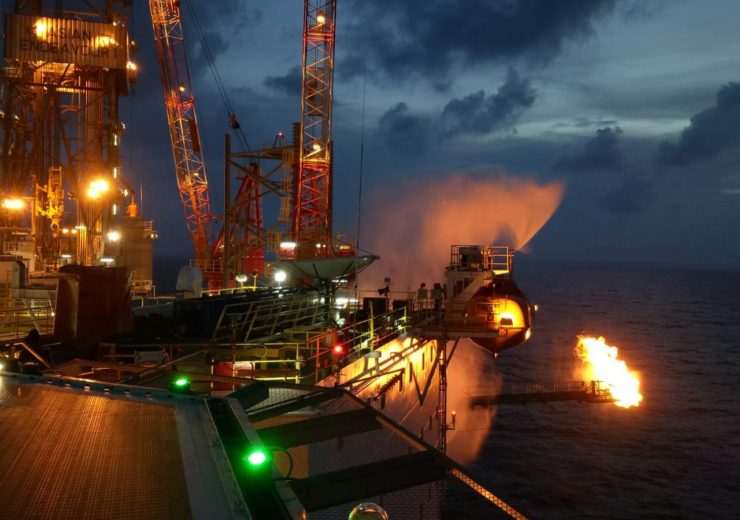According to Conrad Petroleum, the drilling of the Tambak-1 appraisal well has confirmed the Mako gas field to be a very large single tank field

The Mako gas field is located in the Natuna Basin, offshore Indonesia. (Credit: Conrad Petroleum Ltd.)
Conrad Petroleum said that the drilling of the Tambak-1 appraisal well at the Mako gas field in the Duyung block in Indonesia’s offshore Natuna Basin has yielded positive results.
The Tambak-1 well has also been drilled to evaluate the underlying Tambak exploration prospect.
According to Conrad Petroleum, the drill stem test (DST) flowed dry gas from the intra-Muda sands at a rate of 11.4 MMcf/day on a 2.8inch choke while sustaining a wellhead tubing pressure of 225psi.
The company said that the DST showed that the completion method is viable with the maximum flow rate yielded, which confirms the deliverability of the Mako reservoir.
The Tambak-1 well is said to have intersected a 56ft thick sand package having high permeability and good porosity, which is considerably thicker than the 33ft of pay discovered in Mako South-1, said Conrad Petroleum.
The intra-Muda reservoir was intersected at a depth of 1,276 feet sub-sea by the Tambak-1 well.
Mako gas field confirmed as a very large single tank field
Conrad Petroleum said that with the better-than-expected flow test, the data confirmed that the Mako gas field to be a very large single tank field.
Designed to appraise the northeast flank of the Mako gas field, the Tambak-1 explored lower Gabus formation at nearly 5,063 feet subsea, directly below the Mako gas field.
Conrad Petroleum said that results of wireline logging, pressure tests, and hydrocarbon samples throughout the formation have determined that the reservoirs are not commercial. However, the exploration results give more evidence of an active petroleum system, which is promising for future exploration upside within the Duyung block, said the company.
Conrad Petroleum and its partners are currently plugging and abandoning the Tambak-1 well before the demobilising of the COSL Asian Endeavour 1 rig.
Conrad Petroleum CEO Miltos Xynogalas said: “This has been a tremendous result for the drilling campaign as a whole, confirming a very large single tank gas accumulation, connecting Tambak-1, Mako South-1, and Tambak-2 over a long distance, demonstrating beyond any doubt the mobility and deliverability of natural gas throughout the field.
“Our first well in this drilling campaign, Tambak-2, encountered 30 feet of high-quality gas-bearing intra-Muda sandstones, representing a better-developed reservoir than seen in Mako South-1. It also confirmed a common gas-water contact and pressure system across the Mako structure.”
Earlier this year, Conrad Petroleum was granted approval of its re-submitted development plan for the Mako gas field from the Indonesian Ministry of Energy and Mineral Resources (MEMR).
The company is the operator of the Duyung block with a stake of 76.5% and is partnered by Coro Energy (15%) and Empyrean Energy (8.5%).
